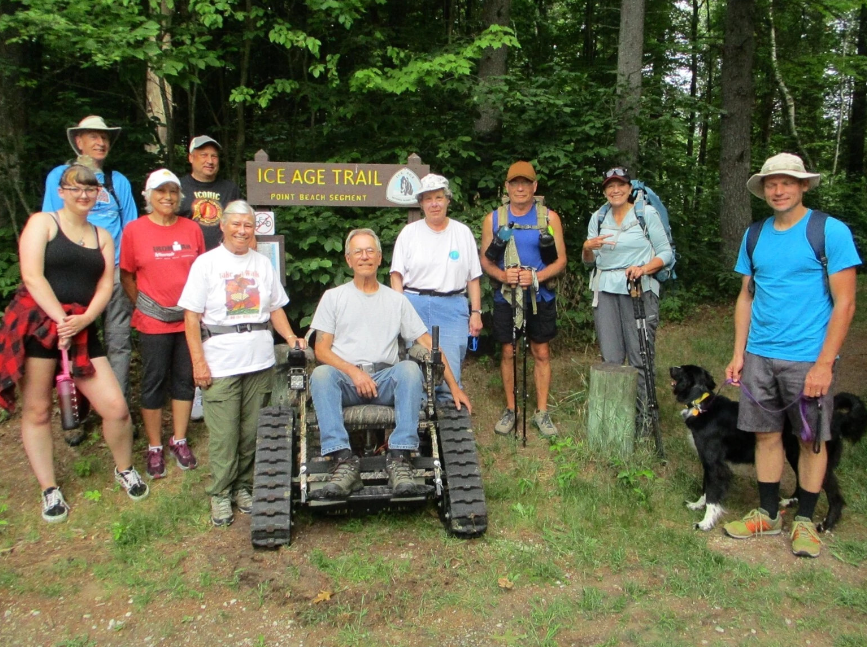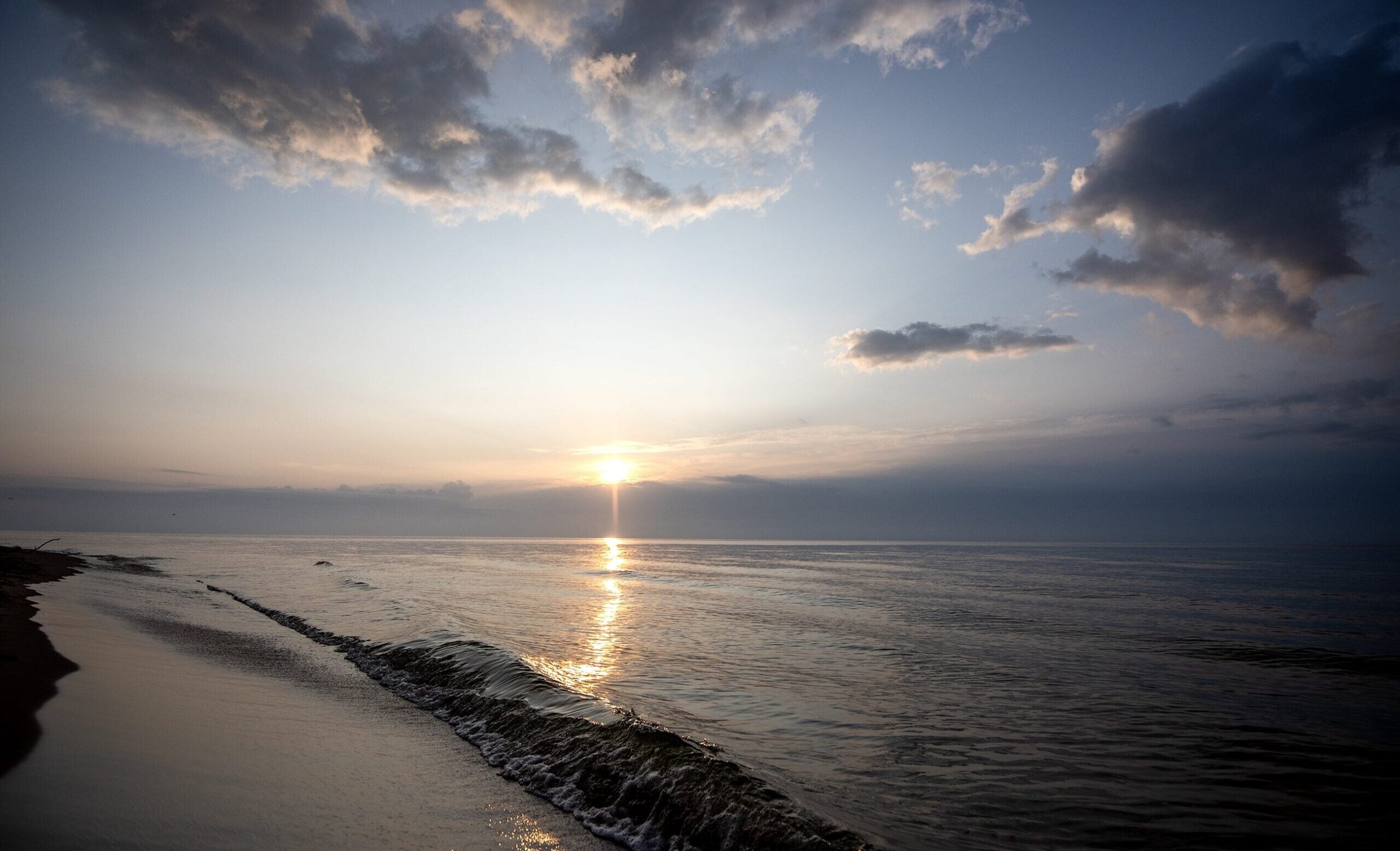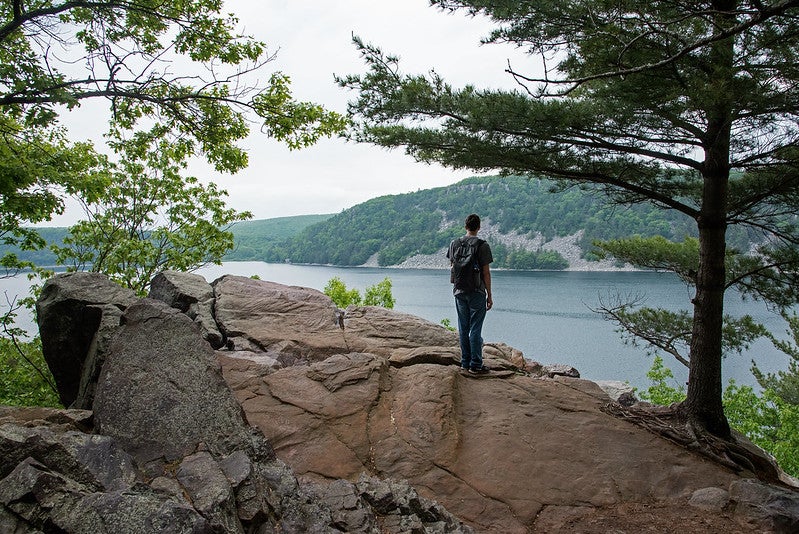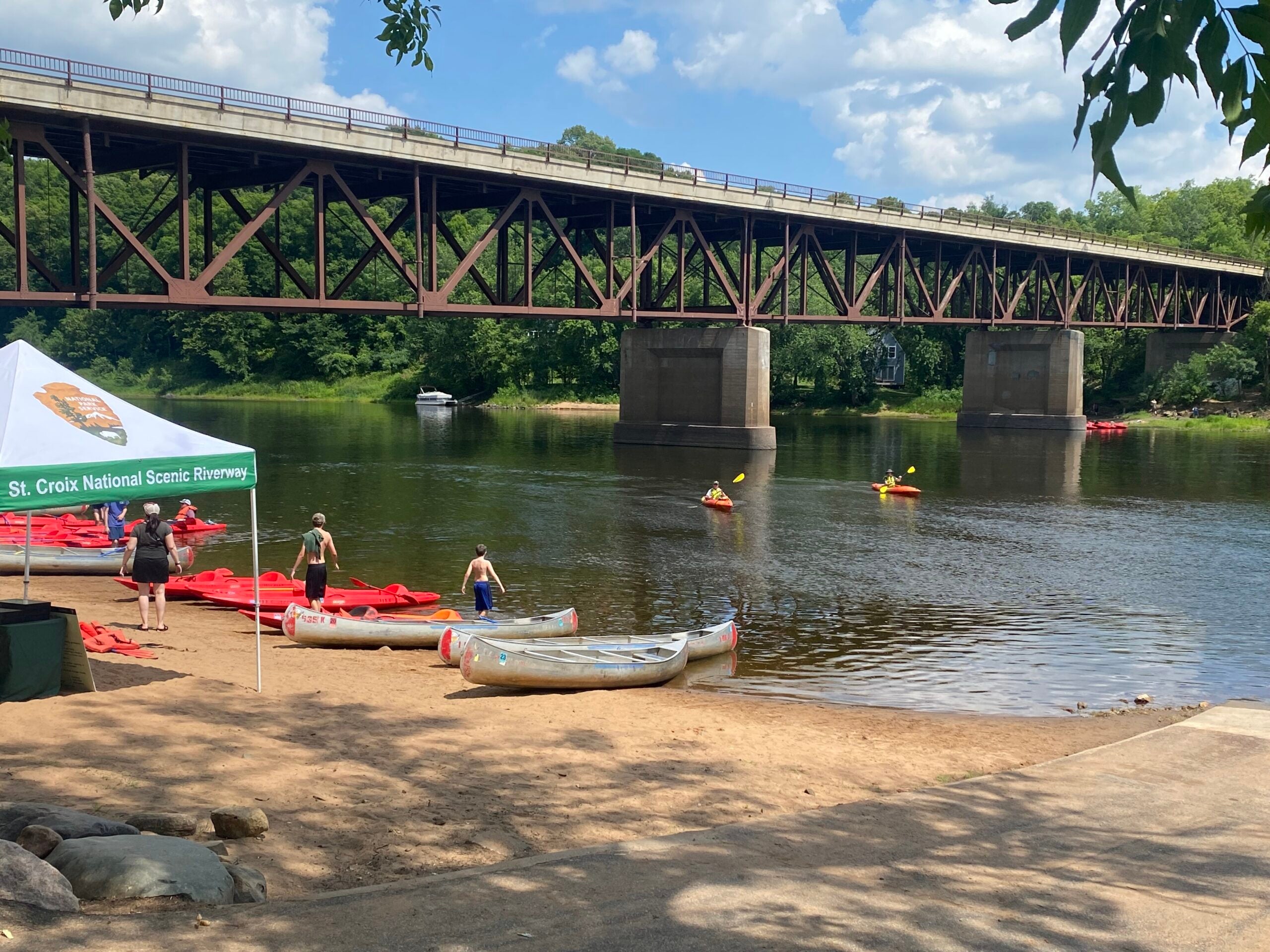People with mobility challenges will have easier access to state parks and forests as the Department of Natural Resources launches an outdoor wheelchair program throughout Wisconsin.
Later this month the DNR will introduce its second motorized all-terrain outdoor wheelchair at Point Beach State Forest. A non-motorized all-terrain outdoor wheelchair is also coming to Kettle Moraine State Forest — Pike Lake Unit.
The wheelchairs have specialty tires that can navigate rough and rocky ground and snow. They are free to use and allow people of all ages and abilities to hike and venture down to the beach.
News with a little more humanity
WPR’s “Wisconsin Today” newsletter keeps you connected to the state you love without feeling overwhelmed. No paywall. No agenda. No corporate filter.
Steve Schmelzer, the Parks and Recreation Management Bureau Director, helped implement the outdoor wheelchair program.
“We want people of all abilities to be able to come out to the properties and recreate. By having these chairs and other accessible pieces of equipment and apparatuses to allow them to do that, it opens up a lot of options,” Schmelzer said.
The all-terrain wheelchairs are in addition to the beach wheelchairs that are at nine Wisconsin State Parks.
All the wheelchairs were acquired through a combination of state park operating funds and donations.
Schmelzer said beach wheelchairs can be found the following state parks: Big Bay, Buckhorn, Harrington Beach, Kohler-Andrae, Newport Beach, Whitefish Dunes and Devil’s Lake; and at Kettle Moraine State Forest — Pike Lake Unit and Southern Unit Kettle Moraine State Forest.
All-terrain wheelchairs will be available at Peninsula State Park, Point Beach State Forest, Buckhorn State Park and Kettle Moraine State Forest — Pike Lake Unit.
“It’s all about giving them some of the same opportunities that a lot of the other park users already have,” Schmelzer said.
One way the DNR is working to expand the program is by connecting with community organizations that are already providing recreational wheelchairs.
The organization Access Ability Wisconsin partners with nature centers, sportsman clubs, park systems and other groups throughout 14 counties. The nonprofit loans wheelchairs and other accessibility equipment out while the community partner is in charge of checking the equipment in and out for individual people to use.
People can use the wheelchairs in state parks, other trails, outdoor spaces or private property for any outdoor recreation activity.
The DNR and Access Ability Wisconsin have been working together since the pandemic to finalize a similar partnership.
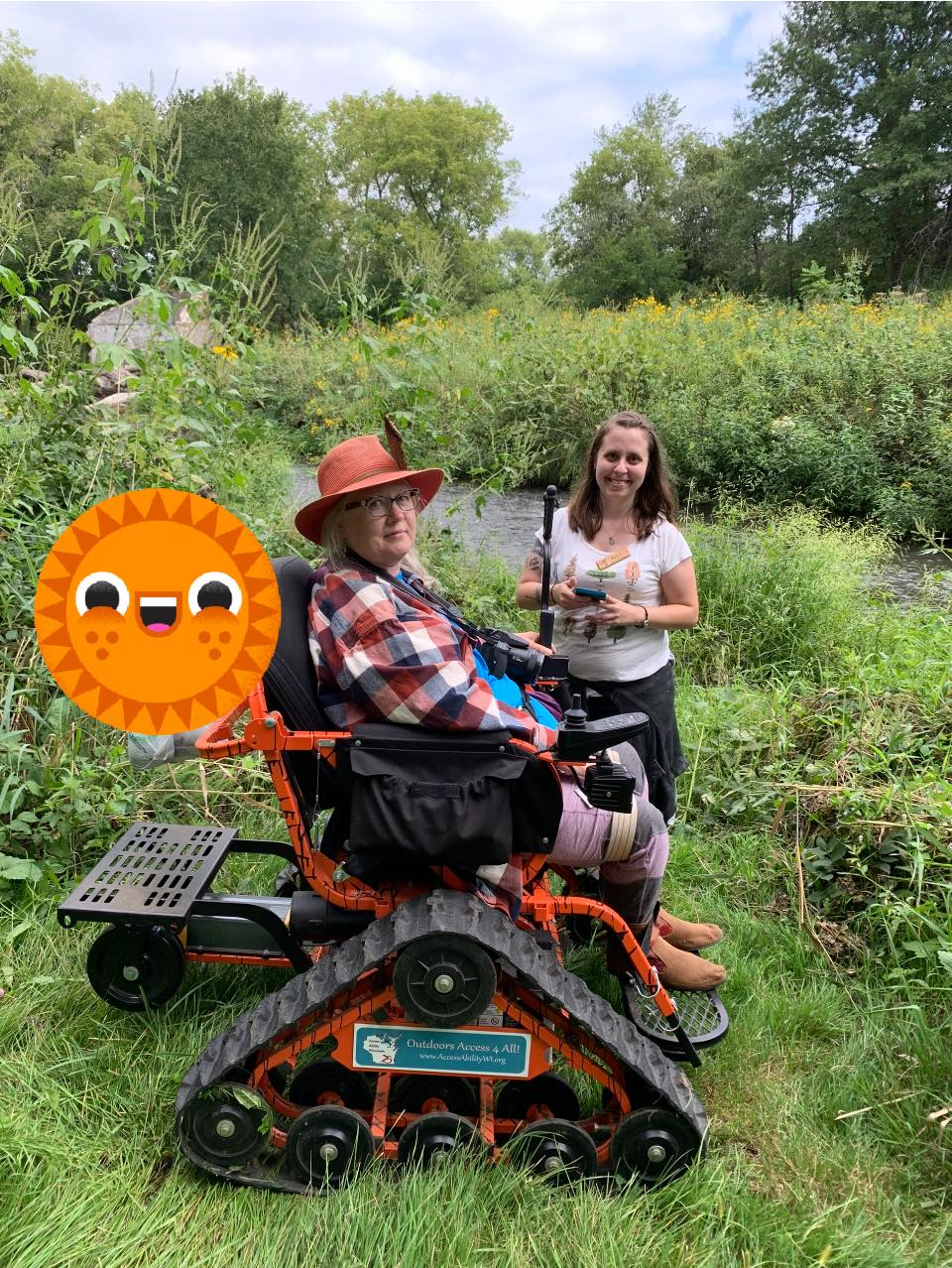
AAW President and founder Monica Spaeni said the group provides freedom, dignity and inclusion for people with disabilities to access the outdoors.
“It increases independence from a dignity point of view. Friends and family can be out in nature together or in solace, and it’s allowing the person to participate,” Spaeni said.
Ray Anderson is the vice president and treasurer of AAW. He said the potential partnership between the organization and the DNR is a positive step. He said any effort to connect people with nature and each other is a good thing.
“When they get in a chair and they go off and do something independently and all of a sudden their dignity is raised, their independence is raised, and you see the smile on their face about what this is doing for them,” Anderson said.
A study in the International Journal of Environmental Research and Public Health found people with mobility impairments can benefit in more than 20 physical, social, and mental health ways when they participate in outdoor activities.
Anderson said it’s gratifying to see these benefits rub off on the people he helps access the outdoors.
“It’s almost beyond words,” Anderson said.
Wisconsin Public Radio, © Copyright 2026, Board of Regents of the University of Wisconsin System and Wisconsin Educational Communications Board.

